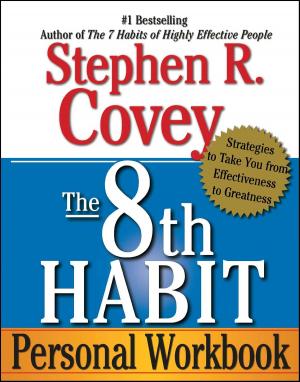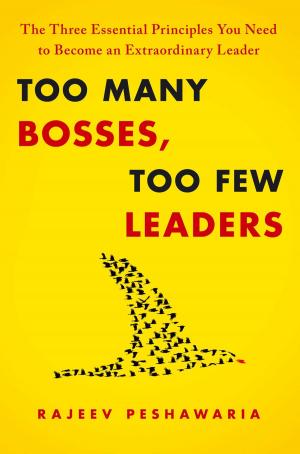Cheating Monkeys and Citizen Bees
The Nature of Cooperation in Animals and Humans
Nonfiction, Science & Nature, Science, Social & Cultural Studies, Social Science| Author: | Lee Dugatkin | ISBN: | 9781439136515 |
| Publisher: | Free Press | Publication: | February 12, 1999 |
| Imprint: | Free Press | Language: | English |
| Author: | Lee Dugatkin |
| ISBN: | 9781439136515 |
| Publisher: | Free Press |
| Publication: | February 12, 1999 |
| Imprint: | Free Press |
| Language: | English |
Cooperation is the fabric that keeps society together. Civilization could not have been achieved -- and will not be sustained -- without it. But what is it? How and why does it work? Could the secret of enhancing human cooperation lie in an investigation of the animal kingdom?
In Cheating Monkeys and Citizen Bees, evolution and animal behavior expert Professor Lee Dugatkin, known throughout the academic community for his ingenious animal behavior experiments, reports, from the cutting edge of scientific research on the startling evolutionary truth about cooperation and how it works. He explains the four paths to cooperation that we share with animals and provides the experimentally verified definitions of a behavior no one thought science could ever explain. The first path is through our families and demonstrates that blood really is thicker than water; the second shows why it makes biological sense to do unto others as they do unto you; the third reveals the dynamics of a kind of selfish teamwork; and the last and grandest path is to complete altruism Dugatkin illustrates his argument with marvelous behaviour in the natural world: baby-sitting mongooses and squirrels that willingly martyr themselves to save relatives; fish that switch sexes in order to share reproductive duties; and vampire bats that regurgitate blood for their hungry mates. With these colorful insights into the natural world, Dugatkin shows that what comes naturally to animals can teach us about the instincts that underlie the complex web of human social networks. We can use our understanding of these instincts to encourage purposeful human cooperation, even in situations where animals would not naturally band together.
Those readers with an interest in ecology, evolutionary biology, psychology, even anthropology will find Cheating Monkeys and Citizen Bees an essential handbook of the dynamics of cooperation. And everyone will find it to be a lucid introduction to the surprising evolutionary history of how we came to behave in the ways that we do, of how nature came to be less brutal than we tend to think.
Cooperation is the fabric that keeps society together. Civilization could not have been achieved -- and will not be sustained -- without it. But what is it? How and why does it work? Could the secret of enhancing human cooperation lie in an investigation of the animal kingdom?
In Cheating Monkeys and Citizen Bees, evolution and animal behavior expert Professor Lee Dugatkin, known throughout the academic community for his ingenious animal behavior experiments, reports, from the cutting edge of scientific research on the startling evolutionary truth about cooperation and how it works. He explains the four paths to cooperation that we share with animals and provides the experimentally verified definitions of a behavior no one thought science could ever explain. The first path is through our families and demonstrates that blood really is thicker than water; the second shows why it makes biological sense to do unto others as they do unto you; the third reveals the dynamics of a kind of selfish teamwork; and the last and grandest path is to complete altruism Dugatkin illustrates his argument with marvelous behaviour in the natural world: baby-sitting mongooses and squirrels that willingly martyr themselves to save relatives; fish that switch sexes in order to share reproductive duties; and vampire bats that regurgitate blood for their hungry mates. With these colorful insights into the natural world, Dugatkin shows that what comes naturally to animals can teach us about the instincts that underlie the complex web of human social networks. We can use our understanding of these instincts to encourage purposeful human cooperation, even in situations where animals would not naturally band together.
Those readers with an interest in ecology, evolutionary biology, psychology, even anthropology will find Cheating Monkeys and Citizen Bees an essential handbook of the dynamics of cooperation. And everyone will find it to be a lucid introduction to the surprising evolutionary history of how we came to behave in the ways that we do, of how nature came to be less brutal than we tend to think.















